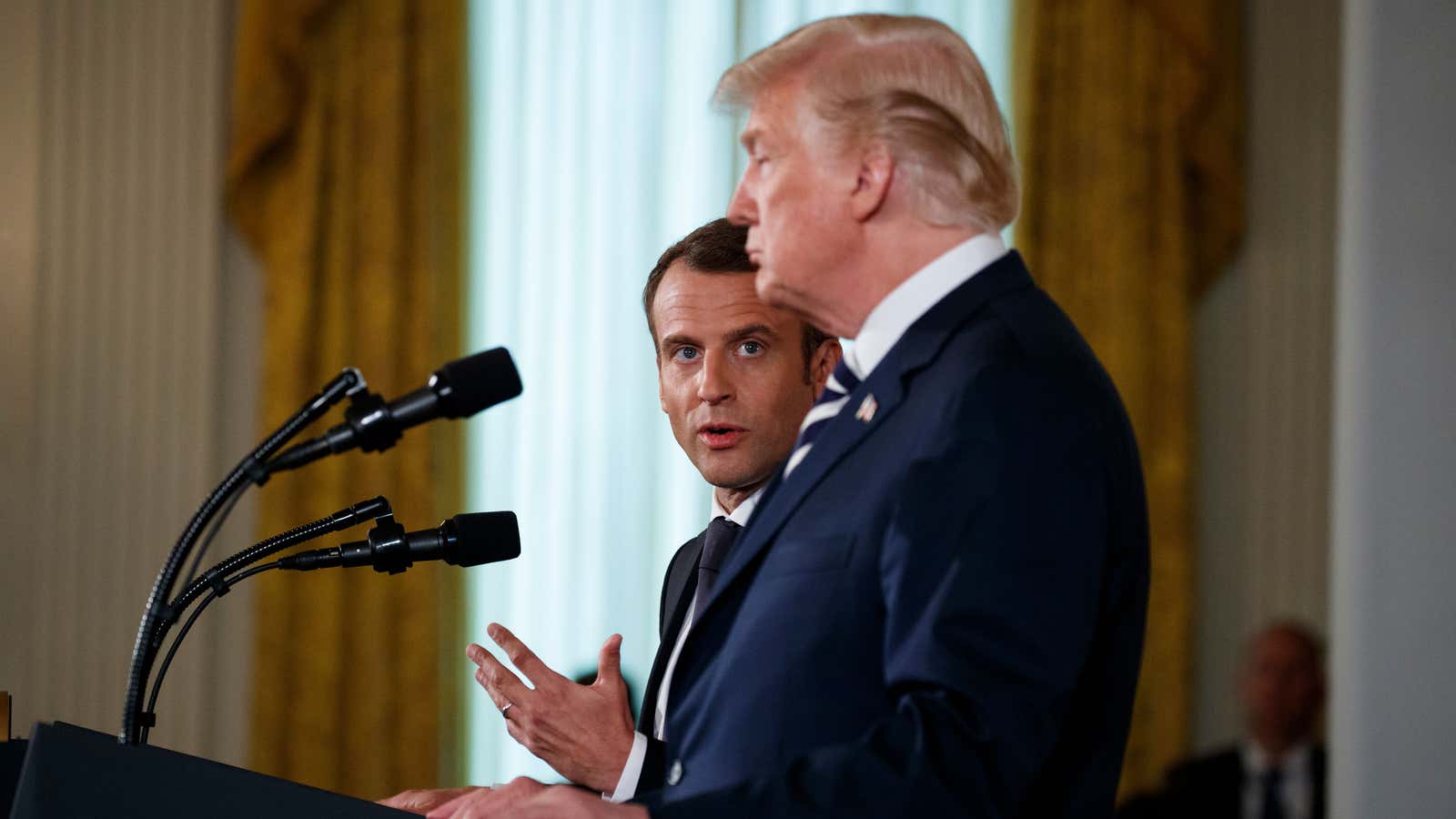Donald Trump abandoned the Iran nuclear deal today (May 8), putting America once again at odds with every other major global power and backtracking on the top foreign-policy achievement of Barack Obama.
Alongside its departure from the Paris climate agreement, the move puts the US squarely outside the global order it has sought to lead since World War II, largely by using multilateral, rules-based agreements. The multilateral deal, agreed to in 2015, lifted sanctions that have helped cripple Iran’s economy over decades. In exchange, Tehran promised to give up most of its nuclear fuel and the ability to build nuclear weapons in the future.
Trump signed a memorandum that he said will begin “instituting the highest level of economic sanctions” on Iran, including potentially sanctioning foreign countries that work with the regime. National security advisor John Bolton clarified in a conference call with reporters that sanctions are immediately returning to 2015 levels, though companies that have already signed agreements with Iran will have a “wind-down period” of around 90 to 180 days to exit those deals before being sanctioned.
Trump said that America’s main aims will be stopping Iran’s ballistic missile program, halting its support for what the US considers terrorist organizations, and neutering its power in the Middle East.
The deal is not necessarily dead in the water. Iranian president Hassan Rouhani said this week that he would stay in the agreement if the other signatories—France, Britain, Russia, China, and Germany—stick to its current terms. Should that continue, Obama’s legacy of putting nuclear handcuffs on Iran could well be maintained.
Bolton has in the past called for bombing Iran (paywall) to halt any nuclear ambitions. Bolton said in the conference call that anyone predicting American boots on the ground in Iran “would be badly mistaken,” though he didn’t deny that the Trump administration’s ultimate aim was regime change in Tehran.
The decision to act without its European allies leaves the US short of leverage, says Behnam Ben Taleblu, a research fellow at the Foundation for Defense of Democracies, who is critical of the deal but argues that Trump should have worked from the inside to improve it. Iran now has the goodwill of the international community, he says: “We want to be in a world where our closest partners in the international community are not siding with the world’s largest sponsor of terrorism on a key security issue,” says Taleblu.
Trump predicted that renewed US sanctions will push Iran to “want to make a new and lasting deal.”
